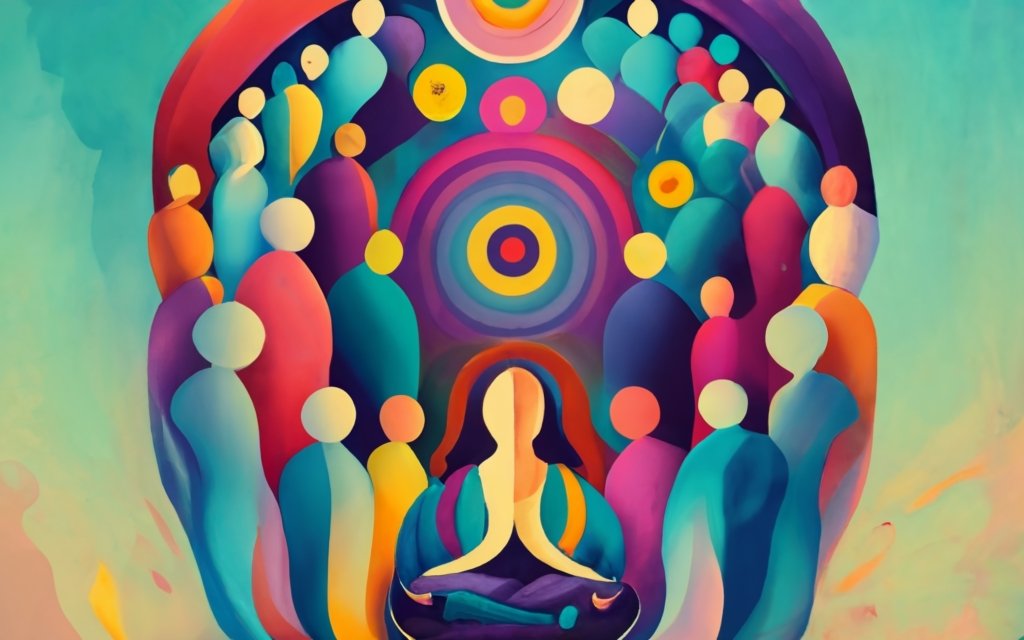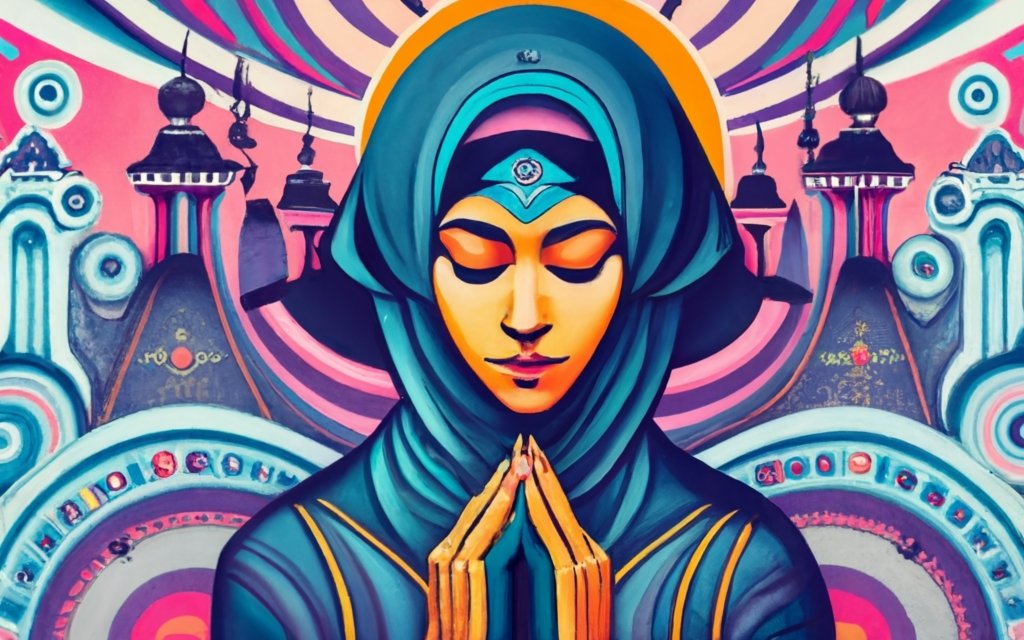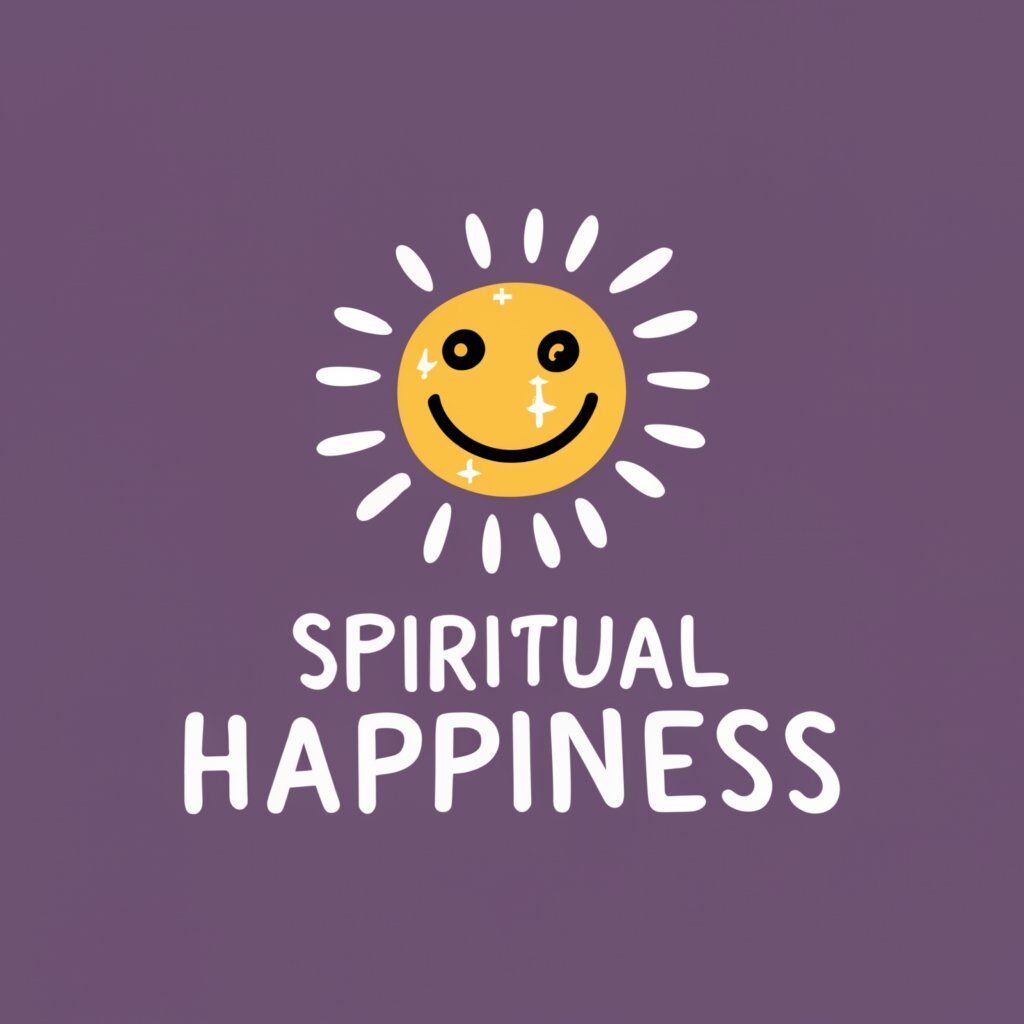What is a Very Spiritual Person? Unlocking the Essence of Spirituality
In a world where the pursuit of spirituality has become increasingly important, many individuals find themselves asking, “What is a very spiritual person?” This profound question delves into the core of human existence, exploring the inner dimensions of our being. In this article, we will explore the various facets of spirituality, answering questions like “What is a spiritual person?” and “What makes a person spiritual?”.
Defining a Spiritual Person

What is a Spiritual Person?
A spiritual person is someone who seeks a deeper understanding of themselves and the world around them. They embark on a journey of self-discovery, aiming to connect with a higher power or the universe itself.
Who is a Spiritual Person?
A spiritual person can be anyone, regardless of their religious beliefs or affiliations. Spirituality transcends religious boundaries, making it accessible to people from all walks of life.
What Makes a Person Spiritual?
What sets a spiritual person apart is their quest for inner peace, harmony, and a sense of purpose. They often engage in practices like meditation, yoga, or mindfulness to nurture their spiritual growth.
Exploring Spiritual Characteristics

What Do You Call a Spiritual Person?
A spiritual person can be called by various names, including a seeker, a mystic, or a soul explorer. The terminology may vary, but their essence remains the same.
What is a Non-religious Person Called?
Someone who embraces spirituality but does not follow a particular religious doctrine is often referred to as a non-religious spiritualist. They draw inspiration from a broad spectrum of beliefs.
What is Considered Spiritual?
Spirituality encompasses a range of beliefs and practices, including meditation, prayer, connecting with nature, and seeking inner enlightenment.
What Does It Mean to Be a Spiritual Person?
Being a spiritual person means living with mindfulness, empathy, and a sense of interconnectedness with all living beings. It involves seeking answers to life’s profound questions.
What It Means to Be Spiritual
To be spiritual is to embark on a journey of self-discovery, exploring the depths of one’s soul and seeking a higher purpose beyond the material world.
What Does It Mean for Someone to Be Spiritual?
For someone to be spiritual is to embrace the mysteries of existence, nurture their inner light, and radiate positivity and compassion to those around them.
Spirituality and Religion

Who is a Religious Person?
A religious person follows a specific faith and adheres to its doctrines and rituals. While spirituality and religion can overlap, they are not synonymous.
What is a Spiritual Person According to the Bible?
According to the Bible, a spiritual person is someone who walks in the path of righteousness, seeking a closer relationship with God and living a life aligned with divine principles.
The Depths of Spirituality

What is a Spiritual Awakening?
A spiritual awakening is a profound shift in consciousness, often marked by a heightened awareness of one’s inner self and a deeper connection to the universe.
What is a Spiritual Attack?
In spiritual contexts, a spiritual attack refers to negative energies or influences that can disrupt an individual’s spiritual journey. It’s essential to protect oneself from such influences.
What is a Spiritual Gift?
A spiritual gift is a unique talent or ability that is believed to be bestowed upon an individual by a higher power. These gifts can be used to serve others and promote positivity.
What is Spiritual Warfare?
Spiritual warfare involves the battle between good and evil forces on a spiritual level. It symbolizes the struggle for inner peace and moral alignment.
Navigating the Spiritual Path

What is a Spiritual Husband?
In some spiritual beliefs, a spiritual husband is a metaphorical concept representing a deep spiritual connection or partnership between an individual and a higher power.
What is a Spiritual Journey?
A spiritual journey is the pursuit of self-discovery, enlightenment, and personal growth. It involves exploring the depths of one’s soul and connecting with the divine.
What is a Spiritual Stronghold?
A spiritual stronghold is a belief or mindset that holds an individual back from spiritual growth. Overcoming these barriers is essential for personal transformation.
What is a Spiritualist?
A spiritualist is someone who believes in communicating with spirits or entities from the afterlife. This practice is often associated with mediumship and psychic abilities.
Embracing the Spiritual Lifestyle

What is a Spiritual Advisor?
A spiritual advisor is a guide or mentor who helps individuals on their spiritual journey. They offer insights, support, and wisdom to navigate the complexities of spirituality.
What is a Spiritual Director?
A spiritual director is a trained professional who assists individuals in exploring their spiritual path, providing guidance and fostering self-discovery.
What is a Spiritual Healer?
A spiritual healer is someone who uses energy, prayer, or other metaphysical practices to promote physical, emotional, and spiritual well-being.
What is a Spiritual Coach?
A spiritual coach is a mentor who helps individuals set and achieve spiritual goals, providing guidance and accountability along the way.
What is a Spiritual Life Coach?
A spiritual life coach focuses on holistic well-being, helping individuals align their spiritual, mental, and physical aspects to lead a fulfilling life.
Assessing Your Spiritual Journey

How Do You Know If You Are a Spiritual Person?
To determine if you are a spiritual person, reflect on your inner journey. Do you seek self-discovery, inner peace, and a connection to something greater than yourself? If so, you are indeed on a spiritual path.
A very spiritual person is someone who embarks on a profound journey of self-discovery, seeking inner peace, harmony, and a deeper connection to the universe. Regardless of religious beliefs, spirituality is a universal concept that invites us to explore the mysteries of our existence and radiate positivity to the world.
Embracing Spirituality in Daily Life

As we’ve explored the essence of a spiritual person, it’s important to understand how one can embrace spirituality in their daily life. Here, we’ll delve into practical steps and insights to help you on your spiritual journey.
Cultivating Mindfulness
Mindfulness is a cornerstone of spirituality. It involves being fully present in the moment, allowing you to connect with your inner self and the world around you. You can practice mindfulness through meditation, deep breathing exercises, or simply by savoring the small joys in life.
Nurturing Inner Peace
Inner peace is a fundamental goal of spirituality. To achieve it, you may find solace in practices like yoga, tai chi, or journaling. These activities promote relaxation, reduce stress, and create a tranquil space for self-reflection.
Connecting with Nature
Connecting with nature is a spiritually enriching experience. Spending time outdoors, whether in a forest, by the sea, or in a park, can help you feel more in tune with the natural world. It’s a reminder of the interconnectedness of all life.
Acts of Kindness
Spirituality often goes hand in hand with acts of kindness. By practicing compassion and empathy, you can make a positive impact on the lives of others. Small acts of kindness, such as volunteering or helping a friend in need, can be spiritually fulfilling.
Seeking Wisdom
Seeking wisdom is a lifelong endeavor. Reading spiritual texts, exploring philosophy, or engaging in deep conversations with others can expand your understanding of the world and your place in it.
Gratitude and Positivity
Gratitude is a powerful tool for spiritual growth. Cultivating a sense of gratitude for the blessings in your life can shift your perspective and bring more positivity into your daily experiences.
Balancing Spirituality and Religion

For those who are religious, it’s essential to strike a balance between spirituality and religious practices. Remember that spirituality can enhance and deepen your religious beliefs, offering a more profound connection with your faith.
Overcoming Challenges on Your Spiritual Path

While the journey towards spirituality is enriching, it is not without its challenges. Here are some common hurdles and ways to overcome them:
Doubt and Uncertainty
It’s natural to have doubts on your spiritual journey. Embrace these moments as opportunities for growth. Seek guidance from mentors or spiritual advisors who can provide clarity.
Distractions
In our fast-paced world, distractions abound. To maintain your spiritual focus, set aside dedicated time for spiritual practices and minimize distractions during those moments.
Negative Influences
Negative influences can hinder your spiritual growth. Surround yourself with positive, like-minded individuals who support your journey.
Self-Reflection
Regular self-reflection is essential. Take time to assess your progress, celebrate your achievements, and identify areas where you can further develop your spirituality.
Patience
Spiritual growth is a gradual process. Practice patience and allow yourself the time and space to evolve spiritually. It’s not a race; it’s a lifelong journey.
In Conclusion
In the quest to understand what a very spiritual person is, we have explored the many facets of spirituality, from its definitions to practical ways of incorporating it into daily life. Spirituality is a deeply personal journey, one that encourages self-discovery, inner peace, and the pursuit of a greater connection with the universe.
As you navigate your unique spiritual path, remember that it’s a journey filled with opportunities for growth, self-realization, and positive transformation. Whether you’re seeking answers to profound questions or simply looking to lead a more fulfilling life, embracing spirituality can be a profoundly rewarding endeavor.
Frequently Asked Questions (FAQ) About Spirituality
In our exploration of spirituality and what it means to be a very spiritual person, it’s natural to have questions. Here, we address some frequently asked questions to further deepen your understanding of this profound journey.
Q1: Can spirituality coexist with religious beliefs?
A1: Absolutely. Spirituality and religious beliefs can complement each other. While spirituality is often considered a personal quest for inner growth and connection, many people find that it enhances their religious faith by providing a deeper understanding and connection to their chosen religion.
Q2: Is it necessary to meditate to be spiritual?
A2: Meditation is a powerful tool for spiritual growth, but it’s not the only path. Spirituality is highly individual, and different practices resonate with different people. Yoga, prayer, mindfulness, or even acts of kindness can all be part of a spiritual journey.
Q3: How can I overcome doubts on my spiritual path?
A3: Doubts are a natural part of any spiritual journey. Seek guidance from mentors, spiritual advisors, or join supportive communities. Engaging in discussions and reading spiritual texts can also help you find answers and alleviate doubts.
Q4: Can one be spiritual without being religious?
A4: Absolutely. Spirituality is not confined to any specific religious doctrine. It can be embraced by individuals who do not align with organized religion but still seek a deeper connection with themselves and the universe.
Q5: What are some signs of a spiritual awakening?
A5: A spiritual awakening often involves a shift in consciousness. Signs may include a heightened sense of awareness, a deeper connection with nature, increased empathy and compassion, and a desire for personal growth and self-realization.
Q6: How can I protect myself from spiritual attacks or negative energies?
A6: Protecting yourself from negative energies or spiritual attacks can be achieved through practices like grounding, visualization, and setting strong intentions for positivity and protection. Surrounding yourself with positive influences is also crucial.
Q7: Can anyone become a spiritual healer or advisor?
A7: While anyone can embark on a spiritual journey, becoming a spiritual healer or advisor often requires specialized training and a deep understanding of spiritual principles. It’s a path that involves nurturing empathy and compassion for others.
Q8: What role does gratitude play in spirituality?
A8: Gratitude is central to spirituality as it fosters a positive mindset and a deeper connection with the world. Expressing gratitude for life’s blessings can elevate your spiritual journey and promote a sense of inner peace.
Q9: How can I balance my spiritual journey with my daily life responsibilities?
A9: Balancing spirituality with daily life responsibilities is a common challenge. Create a schedule that includes dedicated time for spiritual practices. Remember that even small, mindful actions throughout the day can contribute to your spiritual growth.
Q10: Is there an endpoint to one’s spiritual journey?
A10: The spiritual journey is ongoing and ever-evolving. There is no fixed endpoint, as it’s a path of continuous growth, self-discovery, and deepening understanding. Each step you take brings new insights and opportunities for personal transformation.



